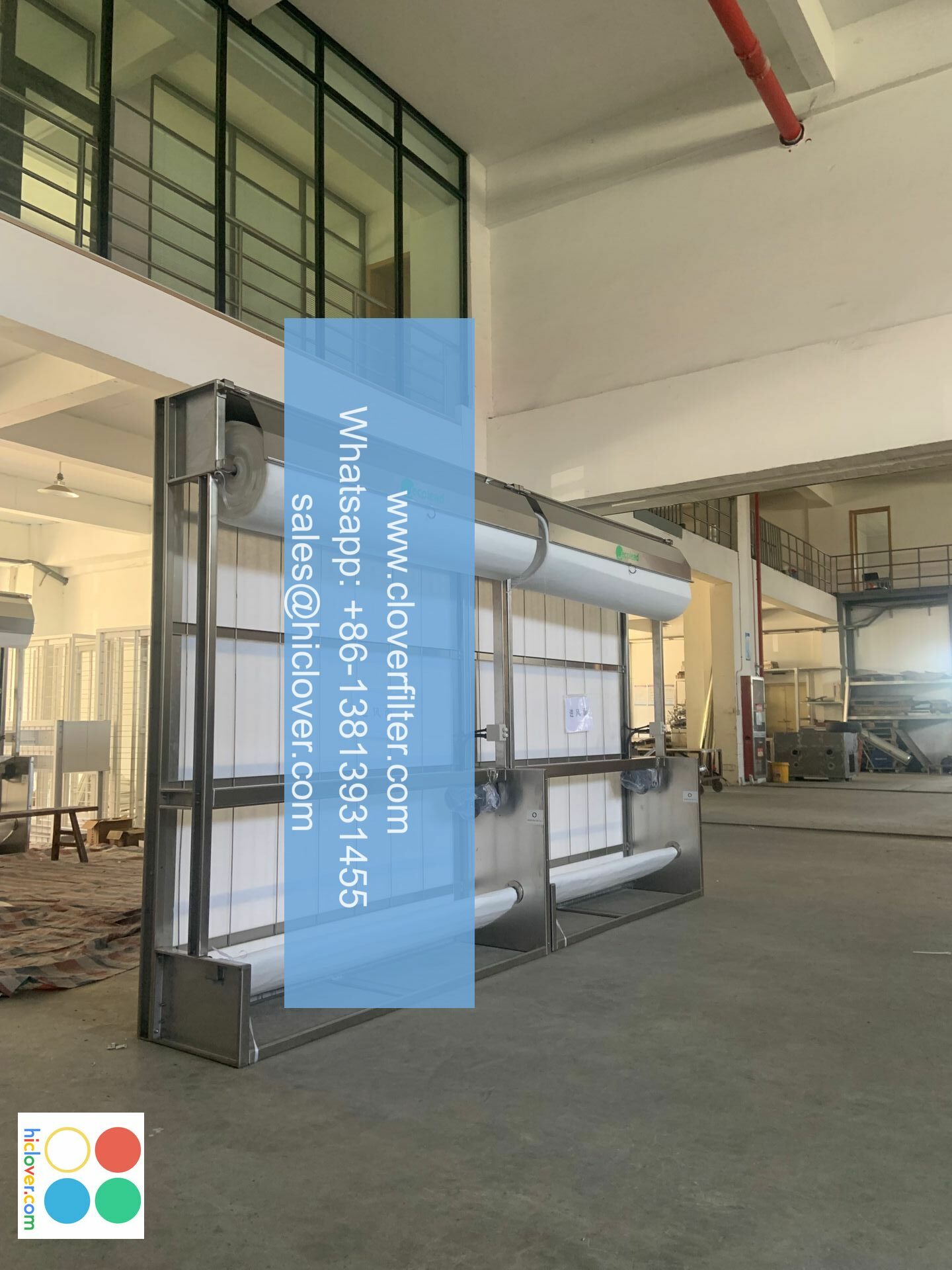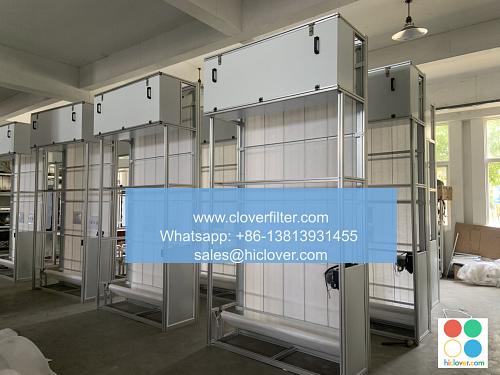Case Study: Implementing Automatic Roll Air Filters in a Quebec Pharmaceutical Cleanroom

Pharmaceutical cleanrooms are highly controlled environments that require precise temperature, humidity, and air quality conditions to ensure the production of high-quality products. In a Quebec pharmaceutical cleanroom, maintaining optimal air quality is crucial to prevent contamination and ensure the integrity of the products being manufactured. Recently, the cleanroom implemented automatic roll air filters to improve air quality and reduce maintenance costs. In this article, we will examine the case study of implementing automatic roll air filters in the Quebec pharmaceutical cleanroom.
The cleanroom, which produces a range of pharmaceutical products, including tablets, capsules, and injectables, had previously used traditional fiberglass filters to maintain air quality. However, these filters had several drawbacks, including high maintenance costs, frequent replacement, and poor air quality control. The facility’s management decided to upgrade to automatic roll air filters to address these issues and improve overall air quality.
The automatic roll air filters were installed in the cleanroom’s HVAC system, which supplies air to the entire facility. The filters are designed to automatically roll out new filter media as the old media becomes dirty, ensuring continuous and optimal air filtration. The system is equipped with sensors that monitor the filter’s condition and alert maintenance personnel when replacement is required.
The implementation of the automatic roll air filters has had a significant impact on the cleanroom’s air quality. The filters have reduced particulate matter and microbial contamination, creating a cleaner and safer environment for product manufacturing. Additionally, the automatic roll air filters have reduced maintenance costs by minimizing the need for frequent filter replacements and cleaning. The facility’s maintenance personnel can now focus on other critical tasks, improving overall productivity.
The automatic roll air filters have also improved the cleanroom’s compliance with regulatory requirements. The facility is subject to regular audits and inspections by regulatory agencies, and the new filters have helped to ensure that the cleanroom meets the required standards for air quality. The facility’s management is confident that the automatic roll air filters will continue to play a critical role in maintaining compliance and ensuring the quality of products manufactured in the cleanroom.
In terms of cost savings, the automatic roll air filters have reduced the facility’s filter replacement costs by over 30%. The filters have also reduced energy consumption by minimizing the need for frequent heating and cooling, which has resulted in significant cost savings. The facility’s management estimates that the automatic roll air filters will pay for themselves within two years, making them a cost-effective solution for improving air quality and reducing maintenance costs.
The implementation of automatic roll air filters in the Quebec pharmaceutical cleanroom has been a success, with significant improvements in air quality, reduced maintenance costs, and improved regulatory compliance. The facility’s management is pleased with the results and recommends the use of automatic roll air filters to other pharmaceutical cleanrooms seeking to improve their air quality and reduce costs.
Conclusion
The case study of implementing automatic roll air filters in the Quebec pharmaceutical cleanroom demonstrates the benefits of using advanced air filtration technology to improve air quality and reduce maintenance costs. The automatic roll air filters have improved the cleanroom’s compliance with regulatory requirements, reduced particulate matter and microbial contamination, and minimized the need for frequent filter replacements and cleaning. As the pharmaceutical industry continues to evolve, the use of automatic roll air filters is likely to become increasingly important for maintaining optimal air quality and ensuring the integrity of products being manufactured.
FAQs
Q: What are automatic roll air filters, and how do they work?
A: Automatic roll air filters are designed to automatically roll out new filter media as the old media becomes dirty, ensuring continuous and optimal air filtration. The system is equipped with sensors that monitor the filter’s condition and alert maintenance personnel when replacement is required.
Q: What are the benefits of using automatic roll air filters in a pharmaceutical cleanroom?
A: The benefits of using automatic roll air filters in a pharmaceutical cleanroom include improved air quality, reduced maintenance costs, and improved regulatory compliance. The filters also minimize the need for frequent filter replacements and cleaning, reducing downtime and improving productivity.
Q: How do automatic roll air filters improve air quality in a pharmaceutical cleanroom?
A: Automatic roll air filters improve air quality in a pharmaceutical cleanroom by reducing particulate matter and microbial contamination. The filters are designed to capture particles as small as 0.3 microns, ensuring that the air is clean and safe for product manufacturing.
Q: Are automatic roll air filters cost-effective?
A: Yes, automatic roll air filters are cost-effective. The filters reduce maintenance costs by minimizing the need for frequent filter replacements and cleaning, and they also reduce energy consumption by minimizing the need for frequent heating and cooling. The facility’s management estimates that the automatic roll air filters will pay for themselves within two years.


